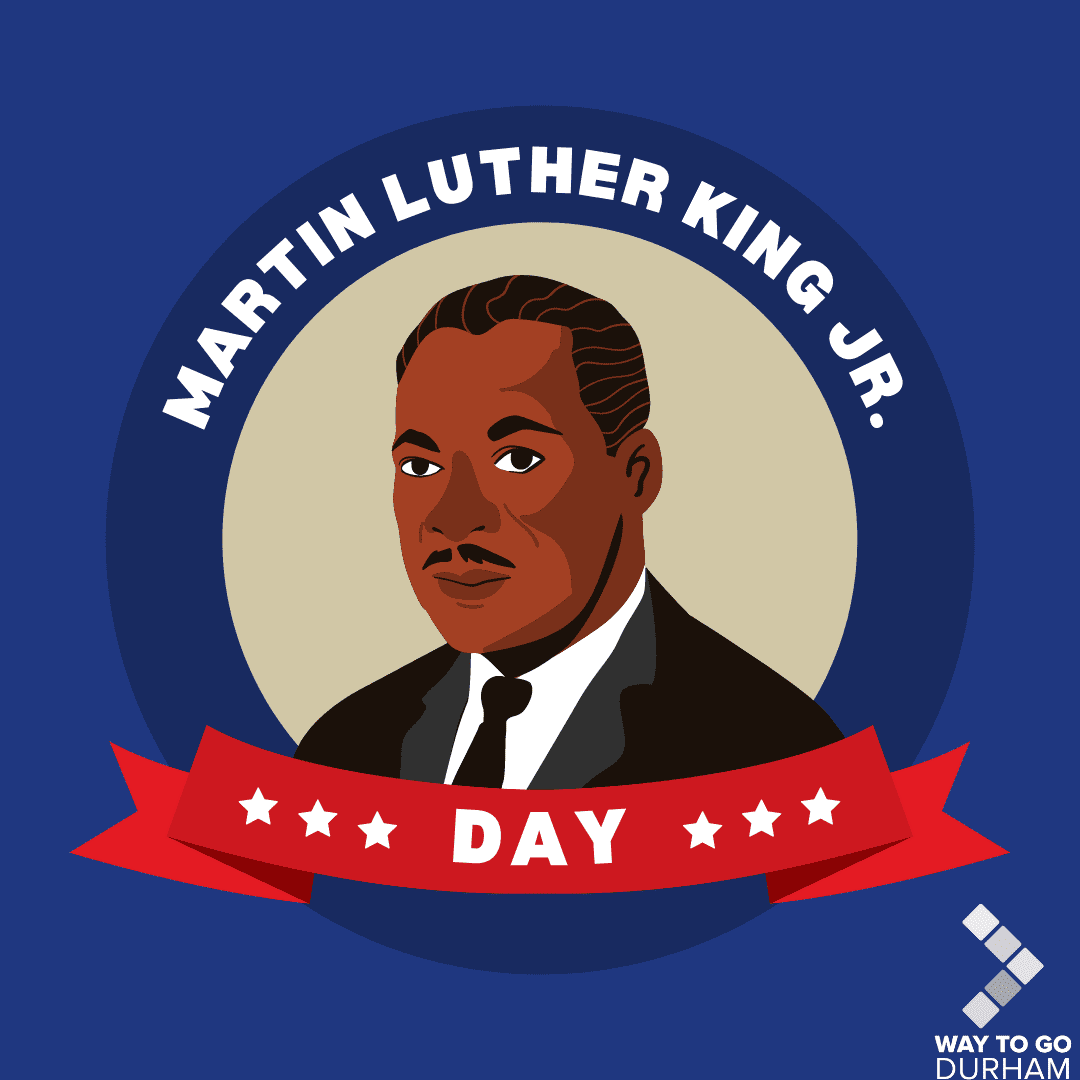Every January, we celebrate the legacy of Rev. Dr. Martin Luther King Jr., a man who dedicated his life to fighting for equity for all. In doing our part to keep his dream alive, we are working to form a bridge of trust and support to address the transportation inequities workers in Downtown Durham have experienced. Our commitment to using innovation as a driving force to promote long-lasting equitable change in transit systems across the Bull City reflects in our Better Bus Project and our upcoming Bull-E-Bike Program Pilot.
One of Dr. King’s most extensive critiques about transportation emphasized the lack of knowledge in transportation planners for urban transportation needs. In Dr. King’s posthumous “A Testament of Hope” essay of 1969, he wrote,
“Urban transit systems in most American cities, for example, have become a
genuine civil rights issue — and a valid one — because the layout of rapid-transit
systems determines the accessibility of jobs to the black community. If transportation
systems in American cities could be laid out so as to provide an opportunity for poor
people to get meaningful employment, then they could begin to move into the
mainstream of American life.”
The sentiments of Dr. King’s words from 1969 are still relevant in today’s society. Now more than ever, “equity” is not just a term. Instead, it is a lifestyle and commitment to change society’s past convictions fundamentally. In correspondence with creating equitable spaces in public transportation, the City of Durham’s Department of Transportation launched the Better Bus Project. The project focuses on improving the designs of street, sidewalk, and bus stop areas to provide safe access to bus stops, increase comfort for passengers, and improve services on GoDurham routes. In January, a virtual community forum provided the opportunity to learn about transit riders’ needs and provide updates on new measures to keep our transit systems safe, equitable, and accessible for all.
In November of 2021, the City of Durham elected its first Black Female Mayor, Judge Elaine O’Neal. Her campaign emphasized the allocation of equitable engagement for residents in a cross-cultural and socio-economic context. In efforts to keep Dr. King’s dream alive, the city launched a call to action for equity. To create space for equity and innovation in transportation, a team of researchers, community organizations, academic institutions, and other organizations developed the Bull E-Bike Program Pilot to address transportation inequities. The goal of the e-bike program is to analyze how the e-bike infrastructure can reduce single-occupancy vehicle trips and maximize impact on transportation equity. The team plans to use a bottoms-up approach with public engagement for the pilot program by learning the transportation needs of the downtown shift workers – a group often overlooked in the TDM research field.
We honor history by looking forward while reaching back to learn of past mistakes while gaining momentum to propel into our future. Honoring Dr. King’s Legacy is not preserved solely for one day in January; instead, it is an ongoing action to remind us of what we have accomplished and still have to achieve. In the Department of Transportation, starting within the community, we are committed to making changes to ensure equity is our focus in our programs, events and initiatives. Dr. King’s legacy will continue to live on through our work to make equity an action and not just a word.

